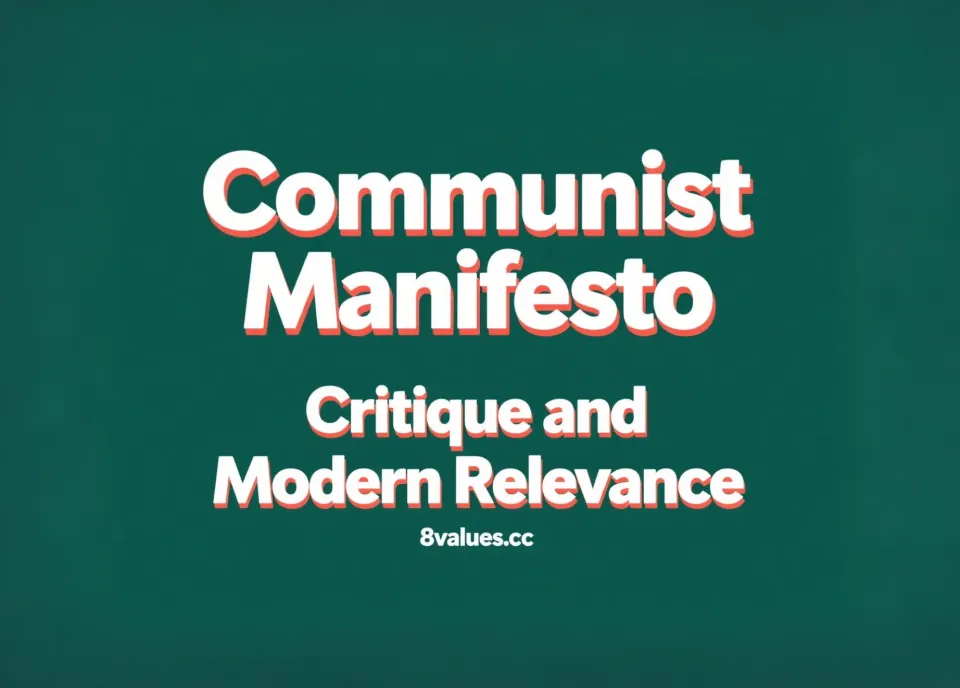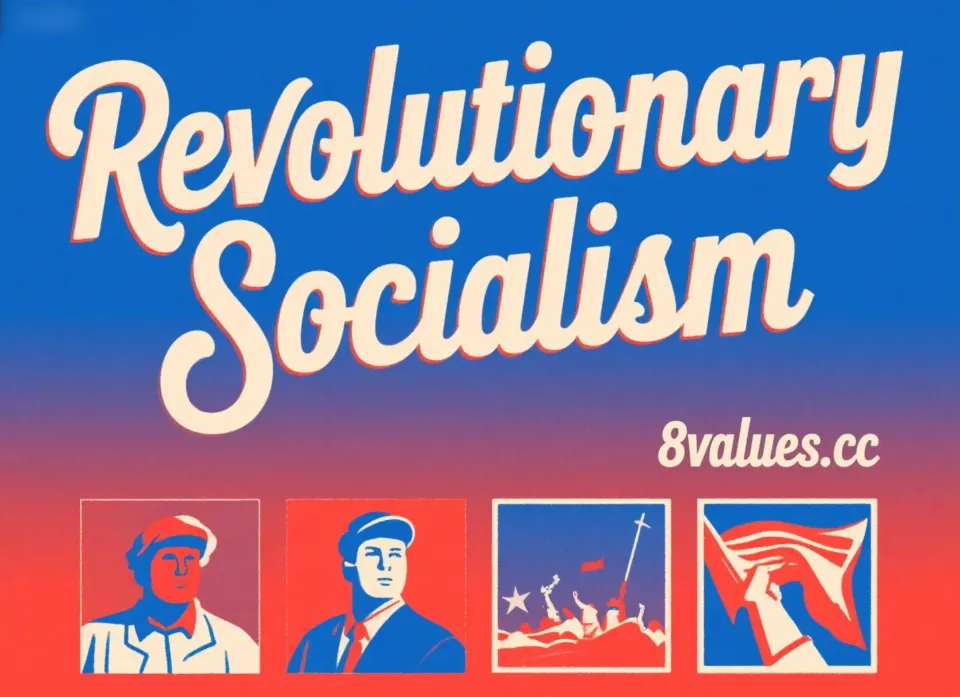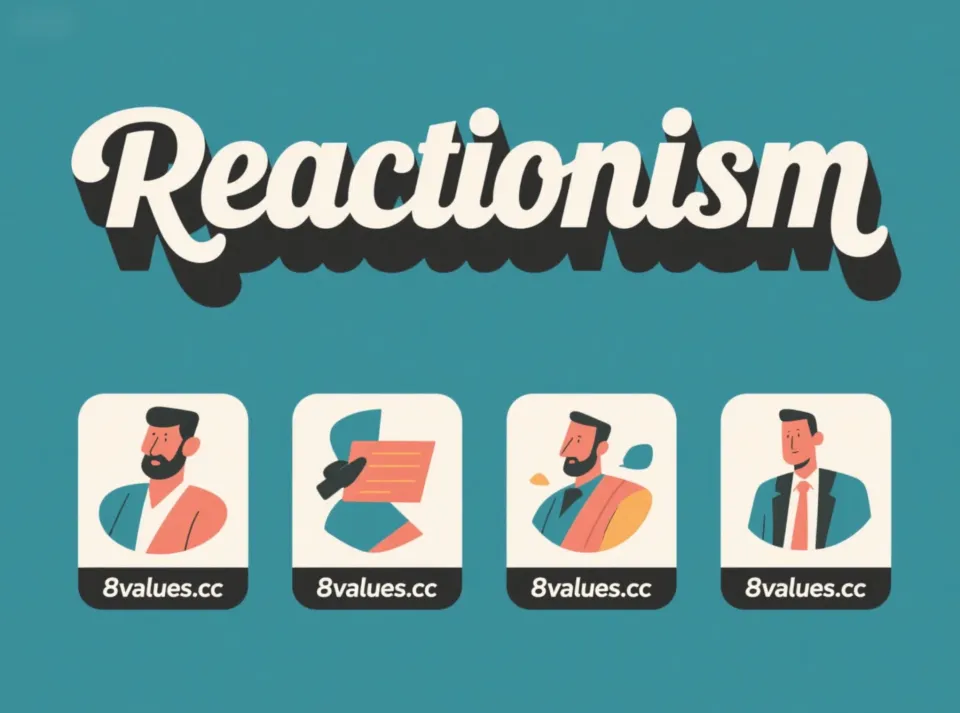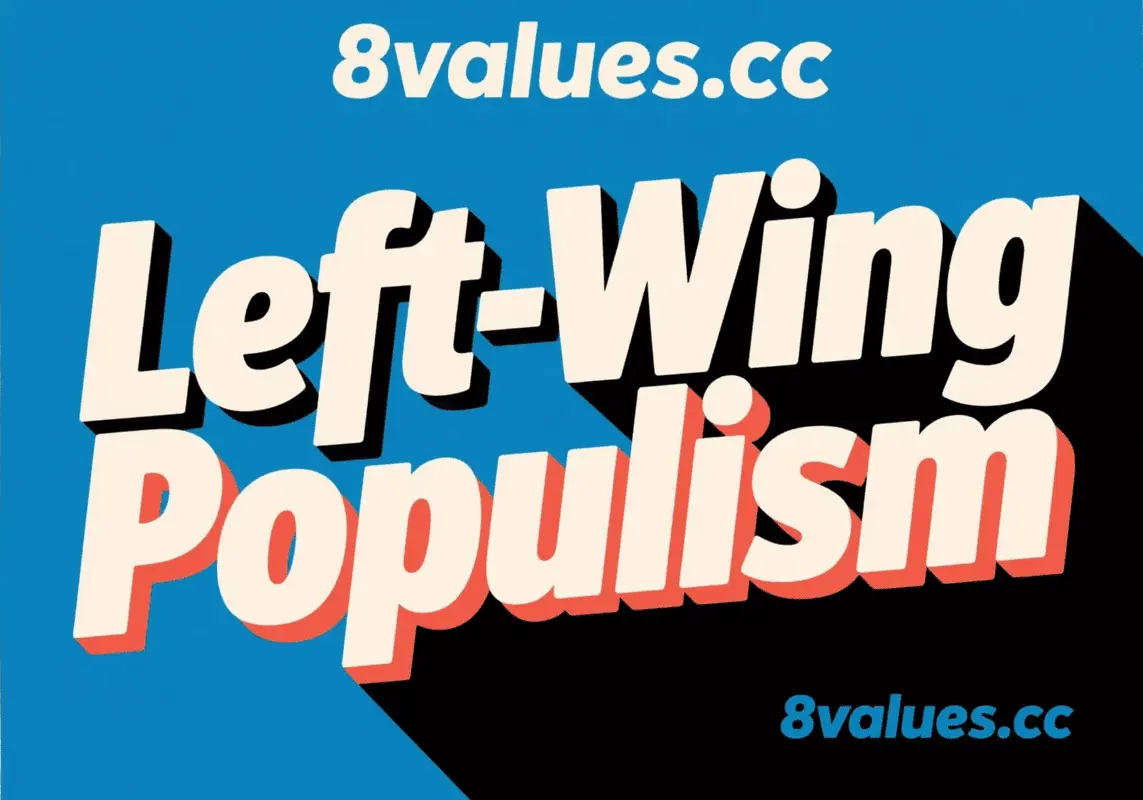The Communist Manifesto: The sharp weapon of scientific criticism and contemporary value
A thorough interpretation of how the Communist Manifesto criticizes utopia, reactionary and bourgeois socialism, clarifies misunderstandings of private ownership and freedom, and explores its lasting vitality in analyzing the crisis of contemporary capitalism.
The Communist Manifesto, as one of the most influential political documents in history, is not only a systematic elaboration of the basic theories of scientific socialism, but also a revolutionary critical spirit . In this work, Marx and Friedrich Engels not only analyzed the internal contradictions of capitalism, but also deeply criticized and clarified the various "false socialism" that were mixed with fish at that time, thus establishing the theoretical status of scientific socialism .
Scientific Socialism's Criticism of Utopia and Reactionary Trends
Chapter 3 of the Communist Manifesto specifically analyzes and criticizes the various "socialist and communist documents" that existed in Europe at that time, and divides them into three categories: reactionary socialism , conservative or bourgeois socialism , and critical utopian socialism and communism .
1. Theoretical boundaries of Utopian Socialism
Marx and Engels criticized utopian socialists, including Saint-Simon, Fourier, Owen and others. The founders of these systems emerged in the early and immature periods of the struggle between the proletariat and the bourgeoisie.
They did see the class opposition in society and the collapse of the old society. Their writings contained attacks on all principles of existing society , and therefore had value for the enlightenment of the working class. However, the fundamental flaw of their theory is that:
- Appeal to reason rather than class struggle: Utopian socialists failed to discover the material conditions for proletarian liberation in the economic field, and therefore they did not base their theory on class struggle and economic basis. Instead of resorting to the revolutionary actions of the proletariat , they hope to achieve their social utopia through peaceful means and even appeal to the feelings and purse of the bourgeoisie , such as the establishment of "Falunstair" or "Little Igaria".
- Depart from practice: They replaced the "movement of history" with "personal invention activities " and replaced the "conditions of liberation that arise in history " with "fantasy liberation conditions ". With the development of modern class struggle, these fantasy views gradually lost their practical value and theoretical basis.
In contrast, the theoretical basis of scientific socialism elaborated in the "Communist Manifesto" is historical materialism and class struggle theory . This methodology believes that the economic mode of production and the resulting social structure are the basis of political and spiritual history, and the history of human society (since the disintegration of the original public ownership of land) is the history of class struggle.
2. Criticism of reactionary and conservative socialist thoughts
Marx and Engels also criticized the reactionary socialism that attempted to prevent the historical process at that time and the bourgeois socialism that tried to improve capitalism to protect itself.
Reactionary socialism aims to turn the pointer of history back to the old era:
- Feudal Socialism : This part of the British and French aristocrats wrote articles against modern bourgeois society, but their main accusation was that the bourgeois system created a revolutionary proletariat that would completely overthrow the old social system . They opposed the bourgeoisie, essentially in order to restore their already disintegrated feudal exploitation.
- Pet bourgeois socialism : This class faces the threat of bankruptcy in the development of capitalism, and they hope to restore old means of production and means of exchange , so their theory is reactionary and utopian .
- Germany's "real" socialism : When German philosophers and literati introduced French socialist ideas into Germany, they ignored the social conditions of class struggle that already existed in France, but instead packaged these ideas with philosophical empty words , such as "alienated human beings" and "real socialism". This trend of thought finally developed to a direct opposition to the "cruel destruction" of communism , claiming to be fairly transcending all class struggles .
Conservative or bourgeois socialism represents a part of the bourgeoisie who hopes to "eliminate social ills to ensure the continued existence of bourgeois society."
- This group of people includes economists, philanthropists, humanitarians , improved people of the working class, and various imaginary "little improvementists".
- They hope to "have a bourgeoisie without proletariat" , that is, they hope to obtain the benefits of modern social conditions without touching on the relationship between capital and wage labor , but they do not want to bear revolution and danger.
- The "last and only solemn statement" of this socialism can be summed up: "The bourgeoisie is for the interests of the working class."
Clarification of misunderstandings: Critical clarification of private property and bourgeois “freedom”
Communists clearly "disdain their views and purposes" , so they must face the various accusations and misunderstandings of communist intentions by the bourgeoisie.
1. Regarding the essence of "eliminating private ownership"
The Communist Party’s theory can be “summarized in one sentence: to eliminate private ownership.” The bourgeoisie interprets this as the elimination of property from personal labor , accusing communism of "depriving people of their right to obtain private property."
Marx and Engels clarified this:
- Distinguishing property types: They do not refer to the "hard-earned property of small handicraftsmen or small farmers, because industrial development has eliminated this property day after day.
- The finger is directed at the bourgeois private property: what communism wants to eliminate is "modern bourgeois private property" , that is, "the kind of property that uses wage labor to exploit" , which is based on the opposition between capital and wage labor.
- The social nature of capital: Capital is a product of collective nature and a social power that can only be moved through the joint activities of all members of society. Therefore, turning capital into public, social property only changes its social nature and eliminates its class nature .
2. Expose the class nature of bourgeois “freedom”
The bourgeoisie also accused communism of "eliminating freedom."
Marx and Engels pointed out that under the current bourgeois production relations, "freedom" only means "free trade, free trading" . This "brave rhetoric" only makes sense when compared to restricted trade in the Middle Ages.
In fact, this freedom possessed by the bourgeoisie comes at the cost of the unfreedom of the proletariat . The concept of the bourgeoisie is nothing more than the product of the "bourgeois production relations and the bourgeois ownership relations." They will "turn the social forms produced from their existing modes of production and ownership into eternal laws of nature and rationality" , and this illusion they are common to all ruling classes in history.
In addition, regarding the accusation of "eliminating the family", Marx and Engels pointed out that modern bourgeois families are based on capital and private profits . In the proletariat, all family connections are torn apart due to the activities of modern large-scale industry, and their children become "simple commodities and tools of labor" , and families are absent in practice. What communism needs to do is to rescue education from the influence of the ruling class .
Dialectical historical materialism and the contemporary vitality of the Communist Manifesto
Although The Communist Manifesto has been published for more than 170 years, its core principles and analytical methods are still regarded today as relevant tools for analyzing social ills and the path of human development.
1. The lasting correctness of the basic principles of the Communist Manifesto
When writing the preface for the Communist Manifesto in 1872, Engels pointed out that despite the great changes, the general principles proposed in the Communist Manifesto are "total in general, they are completely correct to this day." This is due to the basic position and method of Historical Materialism that is permeated by the Communist Manifesto.
- Class Struggle and Economic Foundation: Historical materialism emphasizes that economic production and the resulting social structure are the basis of political and spiritual history . Historical progress is the result of struggles between social classes. This basic principle is still the scientific basis for understanding social contradictions.
- The self-digging of capitalism: The Communist Manifesto dialectically points out that the bourgeoisie "has played a very revolutionary role in history" and constantly innovated production tools and production relations. However, while developing itself, capitalism also "forged a weapon to kill itself, and it also produced people who would use this weapon-the modern workers, that is, the proletariat." The demise of the bourgeoisie and the victory of the proletariat are "equally inevitable" .
2. Analytical Value of Contemporary Capitalist Crisis
The vitality of the Communist Manifesto in modern society is reflected in its profound insight into the ills of capitalism, especially during economic crisis.
- Supported by soaring sales: For example, after the global financial crisis broke out in 2008, the Communist Manifesto soared because it provided the necessary tools for analyzing capitalism, especially the capitalist crisis. This shows that in the face of an intensified global economic inequality and a capitalist system dominated by large global companies, one can still find a framework for analyzing and understanding its ills in the Communist Manifesto.
- Eternal questioning: The Communist Manifesto forces the world to raise some sharp questions: "Why are so many people working, but only a few people thrive? Is inequality inevitable, or can society be more fair?" . This fundamental questioning of the capitalist system makes it still the core text of discussion for those seeking social justice.
Conclusion
If you want to have a deep understanding of your political values and how different political ideologies view these social contradictions and development paths, you are welcome to conduct an 8values political values inclination test to explore your ideological positioning. By reading a series of articles on the official blog , you can better combine theoretical knowledge with current political reality to examine the complex ideological spectrum from a more professional perspective.






